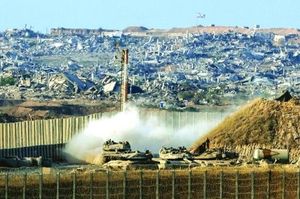South Sudan, the world’s youngest nation, has resumed oil production after nearly a year-long halt caused by the disruptive conflict spilling over from neighboring Sudan. The announcement—celebrated by the government but met with skepticism by experts—comes as the country grapples with severe economic challenges, institutional weaknesses, and corruption.
On January 8, 2025, Minister of Petroleum Puot Kang Chol confirmed the restart of operations at the Dar Petroleum Operating Company (DPOC), which oversees South Sudan’s oil production. The minister expressed cautious optimism during a press briefing, stating, “We know our economy is suffering. We believe with resumption, resources will be back to the table.” DPOC, primarily owned by China and Malaysia, aims to initially produce around 90,000 barrels per day—significantly lower than the pre-shutdown figures exceeding 150,000 barrels.
The resumption followed Sudan lifting its almost year-long ban on oil exports from South Sudan due to the continued civil conflict. “This is what the pipeline will accommodate at first. If we have the capacity to increase, we will do so,” Chol noted. While the government celebrates this resumption as a key milestone, concerns remain about whether it will adequately benefit the wider population.
Independent analyst Boboya James Edimond pointed out the mixed blessings of this development. “This resumption of oil means good news for the government of South Sudan… But for the people of South Sudan, the resumption of oil has not actually been good news,” he explained. Historically, rising oil revenues have been linked to increased corruption and deepening societal inequalities, raising questions about accountability and transparency.
Freelance journalist Patrick Oyet reiterated this concern, stating, “Most government institutions are not working.” He highlighted how, even during previous production periods, citizens had seen little benefit, as inflation surged and poverty remained stagnant. “The economy was not doing well. Inflation was rising, people's purchasing power had really reduced, and taxes were high,” Oyet remarked.
Since the war's onset, South Sudan's GDP has shrunk by 5%, with the oil and gas sector alone contracting by 70%. Undoubtedly, the resumption might provide some relief for the government, yet the national budget remains dismally low at $1.3 billion, starkly inadequate compared to the budgets of regional peers like Kenya and Uganda, which range from $18 billion to $31 billion.
Edimond urged for urgent reforms, stressing the need to diversify the economy away from oil reliance. “What the government needs to do is venture...into other sectors such as gold mining, forestry, trade, and land oil revenue,” he suggested. He expressed concern about the potential misuse of oil proceeds, warning of the risk they might be diverted to support factions involved in the Sudanese civil conflict, particularly the paramilitary Rapid Support Forces (RSF).
The current conflict has led to millions fleeing Sudan, which also puts immense strain on South Sudan's already fragile condition. Maintaining the pipelines—crucial for exporting its oil—often necessitates political maneuvering with various armed groups, including the RSF.
While the news of oil production resumption may signal hope for South Sudan's languishing economy, the backdrop is littered with reminders of systemic issues like corruption and mismanagement. “There’s only hope if the oil can be utilized to eradicate poverty,” Edimond concluded, echoing the desperate aspirations of many South Sudanese citizens who have yet to feel the benefits of their country’s rich oil reserves.



